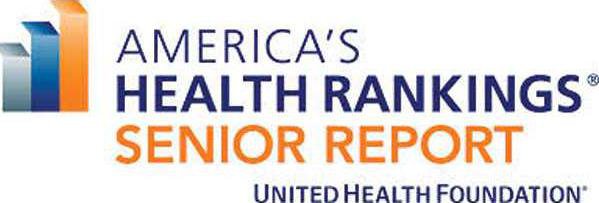Georgia ranks 39th among the states on seniors’ health, one place better than last year, according to a new report on people 65 and older.
America’s Health Rankings Senior Report listed several Southern states at the bottom, including Arkansas at 47th, Kentucky 48th, Mississippi 49th and Louisiana 50th.
Georgia’s strengths, the report says, include a low prevalence of chronic drinking among seniors; high food-stamp enrollment; and a high percentage of health screenings. The state’s challenges include low percentage of quality nursing-home beds; a high rate of hip fractures; and a low rate of people in very good or excellent health.
Vermont is the healthiest state for seniors, according to the report, produced by the United Health Foundation.
Last year, Georgia ranked 40th; in 2013, it was 43rd.
Among other Georgia findings:
• Obesity increased 4 percent in adults 65 or older in Georgia.
• In the past year, smoking decreased from 9.9 percent to 8.7 percent of adults aged 65 and older.
• Flu-vaccine coverage in the past year decreased from 60.1 percent to 54.6 percent of seniors.
Nationwide, seniors are experiencing lower hospital-readmission rates and preventable hospitalization rates compared to last year, the report said. And hospice-care use and the number of home health-care workers have increased.
A high percentage of Georgians are choosing hospices for end-of-life care.
“Having people [spending their final days] in their homes is a really positive thing,’’ Dr. Linda Britton, senior medical director for UnitedHealthcare in Georgia, said Monday in an interview.
Lower rates of preventable hospitalizations and readmission rates also are noteworthy trends, Britton said.
“Keeping people out of the hospital when they don’t need to be there is hugely important,” she said.
Kathy Floyd, executive director of the Georgia Council on Aging, said, “It’s great whenever [Georgia] can move out of the 40s in a [health] ranking.”
She noted that while Georgia rates highly on hospice care, it has low rates on home health-care workers and home-delivered meals.
The report also shows Georgia seniors have a high poverty rate and high level of “food insecurity,’’ defined as “consistent access to adequate food is limited by a lack of money and other resources at times during the year.”
The report on senior health examines publicly available health data and bases its rankings on 35 measures.
Georgia has more than
1 million people 65 and older, a population that’s expected to swell over the next two decades, as in the rest of the country.
Georgia inches up in senior-health ratings


Sign up for our e-newsletters